Why are there speakers if it’s an unconference?
It’s a good question! We like to pin down some talks to get the ball rolling, these are in a single scheduled track, leaving the rest of the time open for … whatever you come up with! Here are some of the talks for 2019:
Noobs on Ubs
I started out as a total noob using Ubuntu, copying and pasting from stack overflow in wild abandon to install whatever I needed without a care in the world. A few chmod 777s later - I actually learnt what that does (spoilers - it’s not always the answer) and decided I should maybe learn how my OS works.
In this talk, I’ll be explaining how Linux works and sharing my story as a beginner.
This talk is for you if you’re a beginner/hobbyist/Linux-lite user and looking to feel less alone in the world.
Anna @anna_hax
 |
Software Engineer, likes making and breaking stuff, hanging out in the tech community, organiser of @WiT_Notts, Free and Open Source advocate. She/her |
The Progress of MQTT
Back in 2009, at OggCamp01 (before we got the numbering convention sorted out), I gave the opening keynote about Internet of Things and the MQTT messaging protocol that underpins all the cool things I’d been doing to automate my home, save energy in a number of ways, and make the Isle of Wight ferries tweet about their movements. Roger Light was in the audience and was sufficiently inspired by my talk to rush home and create the mosquitto project on launchpad. The rest, as they say, is history, and 10 years later, at OggCamp19, I will give edited highlights of the tremendous impact MQTT has made in the world of Internet of Things in the last ten years, which has been considerably helped by the widespread adoption of mosquitto as the first open source MQTT message broker. I will also talk about some of my recent IoT projects, including animatronic dinosaurs, more ferry-related stuff, and keeping antelopes warm in their beds in the winter!
Andy Stanford-Clark @andysc
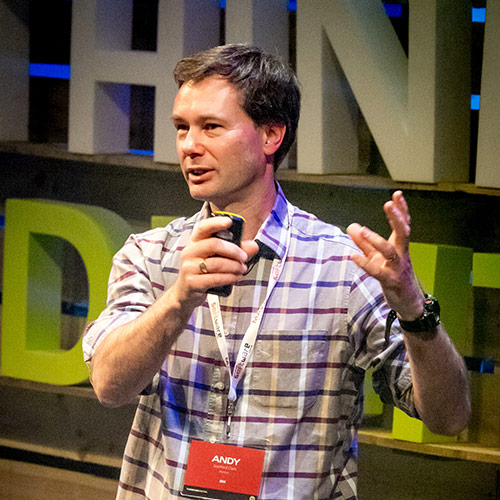 |
Andy Stanford-Clark is the Chief Technology Officer for IBM in UK and Ireland. He is an IBM Distinguished Engineer and Master Inventor with more than 40 patents. Andy has been working in the area of Internet of Things for more than 20 years: he co-developed the MQTT messaging protocol in 1998. Andy is a keen maker, and a founder member of the Guild of Makers. He has interests in home automation, energy saving and animatronic dinosaurs! He has a BSc in Computing and Mathematics, a PhD in Computer Science, and holds 3 Visiting Professorships at UK universities. |
Roger Light @ralight
 |
Roger is a senior developer at Cedalo AG, where he works on a component of their soon to be open source Internet of Things enabled spread sheet service, StreamSheets. He is the project lead and main developer of the Eclipse Mosquitto project which came about because of the first Oggcamp, and has become unexpectedly popular. |
Video Killed My Data Plan: Delivering video that doesn’t break the bank
Video is one of the fastest growing mediums on the web and in mobile applications. Video files have been shown to increase engagement, and can be a great way to deliver your message quickly. (And who doesn’t love animated GIFs?)
However, video that takes a long time to start up leads to frustration and abandonment. The same goes for video that stalls during playback. In this talk, you’ll learn best practices to optimize the delivery of your video to you customers, ensuring fast delivery and minimizing stalls for a great customer experience.
Doug Sillars @dougsillars
Doug is a leading mobile developer advocate and evangelist.
He is widely known as an expert in mobile application architecture, especially when it comes to performance. Doug has worked with thousands of developers around the world, helping them improve the speed, battery life and customer satisfaction of their applications (both native and web). The author of O’Reilly’s ‘High Performance Android Apps,’ he has spoken at conferences around the world on mobile performance.
He is currently freelancing, and traveling with his family of 6 (plus the dog!) as a digital nomad in Europe.
The IndieWeb Movement: Owning Your Data and Being the Change You Want to See in the Web
In today’s age of the Web, we’ve resigned ourselves to using social Silos, such as Twitter, Facebook or Medium. Content we create on their platforms is owned by them, free for them to profit off it, and we can’t move off the platforms because then all our followers would need to use a new platform.
The IndieWeb is all about taking the control of where we post, and how. As citizens of the Web we deserve to own the content and data we so lovingly produce, so why don’t we do it? Why don’t we use our websites as our social hub, publishing on our own site, and then syndicating everywhere else?
If there’s something that you want a Silo to do, why not build it yourself? If we build our own platforms, we can decide how they work and interoperate. By selfdogfooding we can use our own projects to help drive the functionality we want, being the change we want to see in the world.
We’ll talk about the underlying open standards and Open Source components that are driving the ease of adoption across it, such as Microformats2, Webmention, Micropub and Microsub, and IndieAuth, to name but a few!
This is truly about creating the Social Web, providing an RSS-feed like experience to follow all your friends, colleagues, and people of interest, but being able to interact in-feed, as you would on i.e. Twitter. You can add inline comments, like, or reshare the content for those following your own site.
And of course, it’s all about enabling everyone to get involved - feedback from not-as-technical folks, through to multiple implementations of the same tools are actively encouraged.
But don’t even get me started on the Fediverse (i.e. Mastodon) - which would be a whole talk in itself.
Jamie Tanna @jamietanna
 |
Jamie is a Software Quality Engineer 2 at Capital One UK, working on Identity Services. He has a passion for backend engineering, especially around APIs and automation. He is a GNU/Linux user, a big advocate for the Free Software Movement, and a personal website fanatic, even more so since joining the IndieWeb community, where he looks to self host as many services as he can. |
Running an open source project with (almost) no community
I run the LibrePlan project. My biggest user is an oil company with offices in 30 countries. LibrePlan is a web-based project management application with very professional features. I have been managing this project for the past 5 years. In this talk I want to show you what LibrePlan is, why it’s so cool and how I kept the project alive. It is a talk about tech stuff, but also about moral dilemma’s. It’s a talk for newbies, but also for those with lots of open source development experience.
Jeroen Baten @jeroenbaten
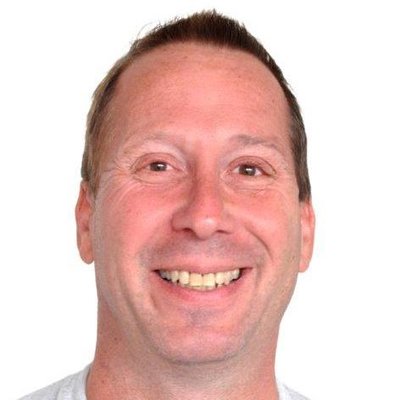 |
I have been working for ages in the ICT world. I started like most in technical positions but have long been doing consultancy work. Because I like to think in practical solutions you might call me a “solutionist”. A customer needs good answers more then more questions. |
Collecting badges with parkrun: The tale of the running-challenges browser extension
Last year, we added a new dimension of fun to Saturday morning 5k parkruns with virtual badges in a browser extension. Suddenly it became ‘a thing’ with 10,000 users across the world.
We’ll talk about how it all started, how and why we develop the extension for both Firefox and Chrome, our ethos, what data we have available and its limitations, and managing the requests and high expectations of the parkrun community.
Dr Laura Cowen @lauracowen and Andy Taylor @fraz3alpha
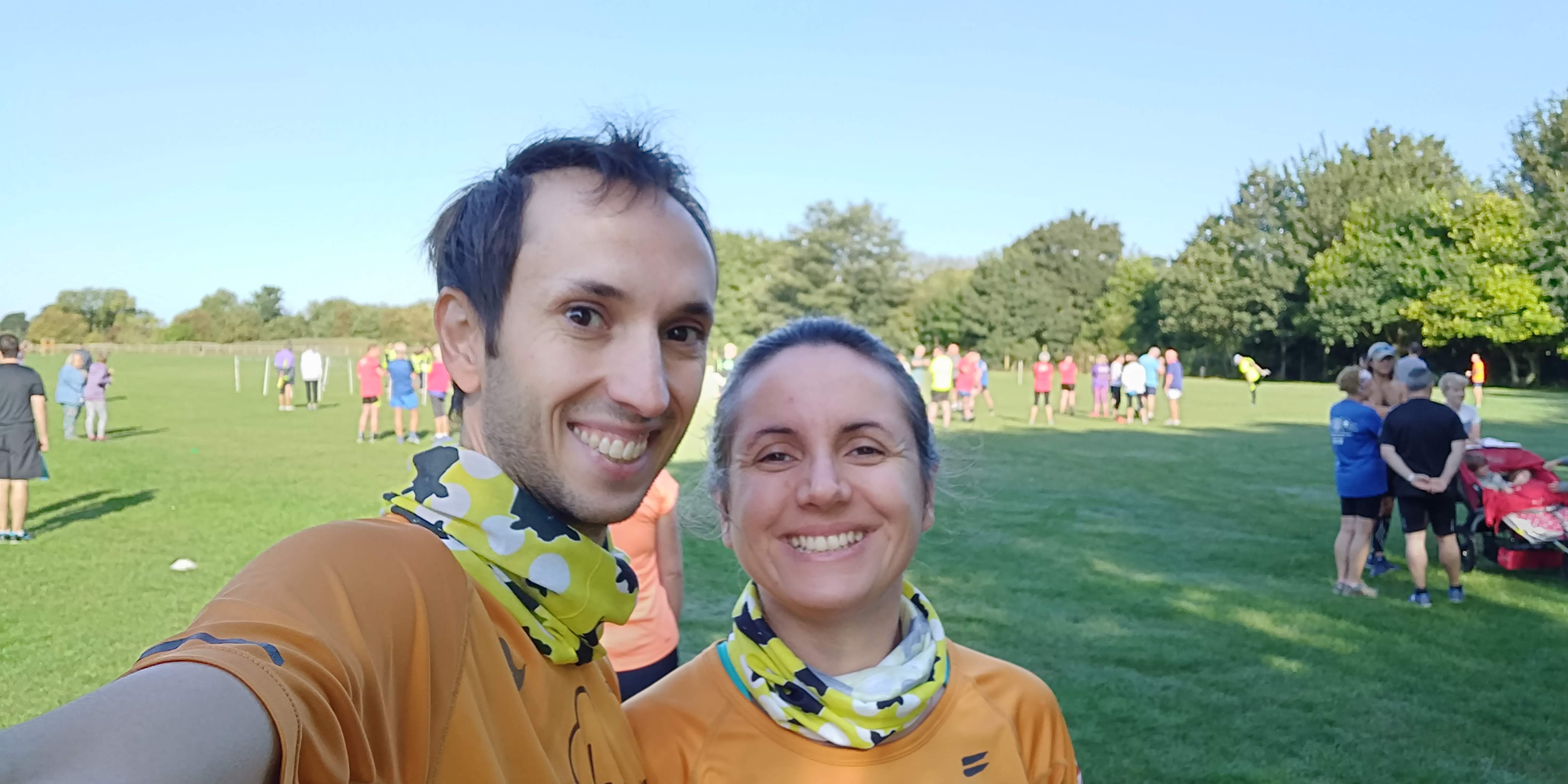 |
Andy: Builder of the LED disco dance floor (see OggCamp 17), and regular parkrunner. Happier playing around with electronics and power tools than with web development, but will give it a go! Andy started parkrun in 2014, has volunteered over 75 times, and run 12 PBs. He has an average parkrun location in the middle of the English Channel, and the nearest event to home that he has not yet done is in Fareham. Laura: A former presenter on the Ubuntu podcast and a founding organiser of OggCamp, Laura is a keen parkrunner and shares the parkrun love with anyone who’ll listen (see OggCamp 15). Since starting parkrun in 2015, she’s run on more than 140 Saturday mornings at more than 40 different parkrun locations in 5 different countries (nearest: Winchester; furthest: San Francisco). She has a p-index of 3. |
Confronting the AdTech Leviathan
Advertising technology (AdTech) systems broadcast the public’s personal data to thousands of companies who use it to track users across the internet and build sophisticated profiles. After being declared unlawful under the General Data Protection Regulation (GDPR), a reckoning is coming. Learn how the shadowy AdTech ecosystem works and how its abuses are being exposed and challenged.
Mike Morel @OpenRightsGroup
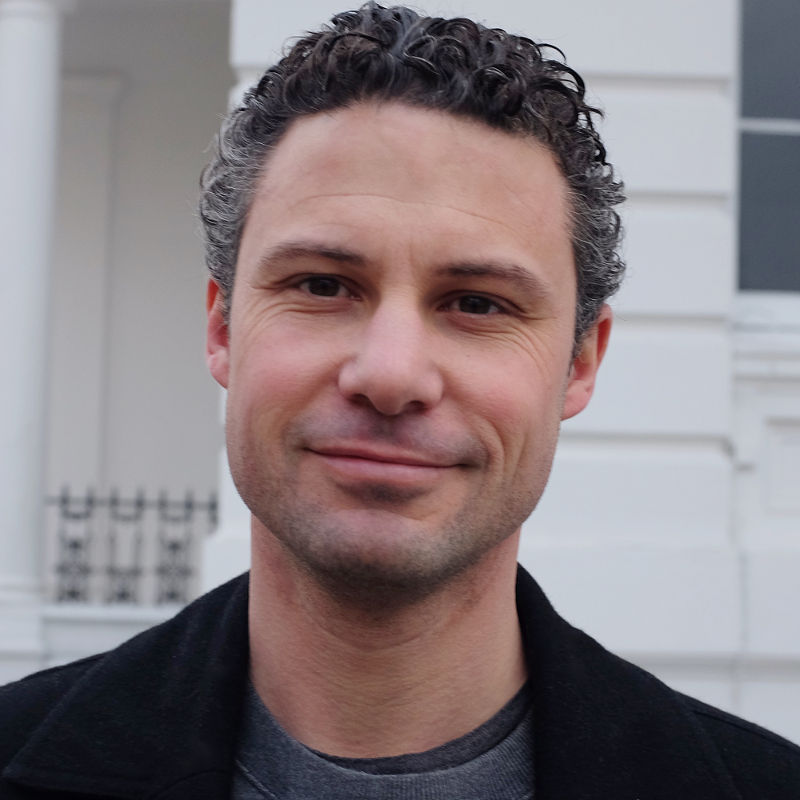 |
Michael Morel is Campaigns Manager at Open Rights Group (ORG), an organisation dedicated to protecting the ‘digital rights’ of UK residents including free expression, digital privacy, and freedom from mass surveillance. Before moving to London, Mike worked as a media reform advocate in Washington DC, New York City, and his native San Francisco Bay Area. He’s written and presented about digital rights issues, political polarisation and media bias. He holds an MA in Government from Johns Hopkins University in Washington DC, and BA’s in Political Science and Physical Anthropology from the University of California Santa Cruz. |
Making Free Productivity Software Sustainable
Productivity software like LibreOffice has long been sustained by the commercial activities of community members as well as the contributions of countless volunteers. That’s also driven standards engagement, like the work around ODF. But the cloud is slowly killing the desktop support business, and volunteers aren’t enough for complex, mature software. TDF has been innovating to sustain LibreOffice and ODF. This talk will describe the COSM and TDC projects which are sustaining LibreOffice, ans ask whether similar approaches might sustain other open source desktop software.
Simon Phipps @webmink
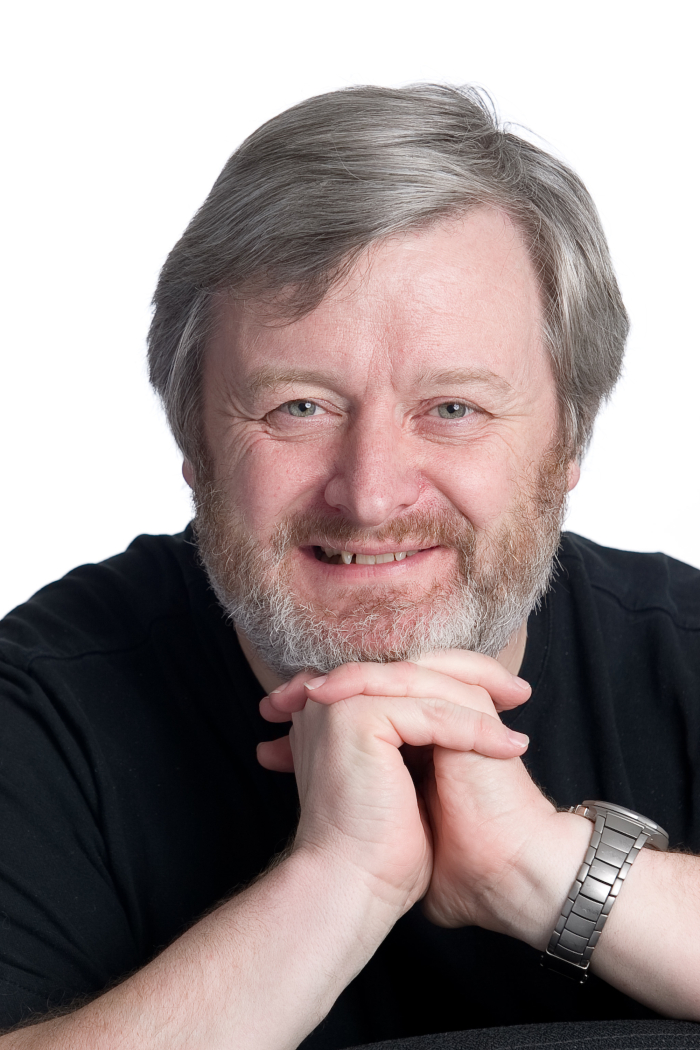 |
Simon Phipps is managing director at Meshed Insights Ltd, advising companies globally on the dynamics of open communities. He was previously head of open source at Sun Microsystems and a founder of IBM’s Java business unit. He is President of the Open Source Initiative (OSI), the non-profit organisation that advocates for open source software, builds bridges between open source communities and maintains the canonical list of open source licenses. He is also on the board of the Open Rights Group and of The Document Foundation. He has been widely involved in standardisation activities, including as a founding director of the Open Mobile Alliance and as one of the Sun executives sponsoring the donation of resources to OASIS to create Open Document Format (ODF). He is a Fellow of the British Computer Society as well as an Open Forum Fellow. https://webmink.com/ |
Lets map the world, Missing Maps and Openstreetmap
We all know Wikipedia, well there is a similar project for maps, OpenStreetMap. Currently most of the western nations have good coverage on both OpenStreetMap and other maps, but when we go to the poorer and underdeveloped parts of the world there are no maps. Not on detailed scale that is actually useful.
The Missing Maps project has set itself the target of getting the these parts of the world mapped.
And we in the west can directly help with this, by helping to create the base maps that local people then add to and correct. By creating open map data we are making the world accessible
In the talk I will show how you can directly help, and what open source technologies are doing to create the worlds open mapping resource.
Stuart Ward @stuartward
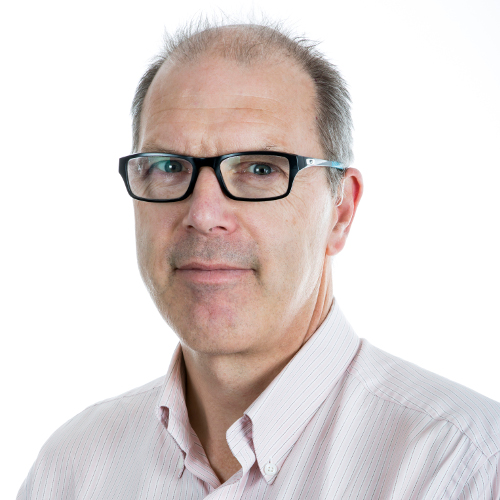 |
I have been a contributor to Openstreetmap for a number of years. A couple of years ago I discovered the Missing Maps project and have progressed my mapping, and now help to introduce Missing maps, and Openstreetmap to a wider audience, by organising mapathons, and helping to train volunteers at mapathons. |
We built a crowd-sourced open data site!
Spoiler Alert - one day, you’re going to die. You may not get a blue plaque, but perhaps you’ll get a memorial bench. Liz & Terence have built openbenches.org where anyone can add to a collection of open data. We’ll show you why & how we built this collection of >12000 benches from around the world.
Elizabeth Eden @summerbeth and Terence Eden @edent
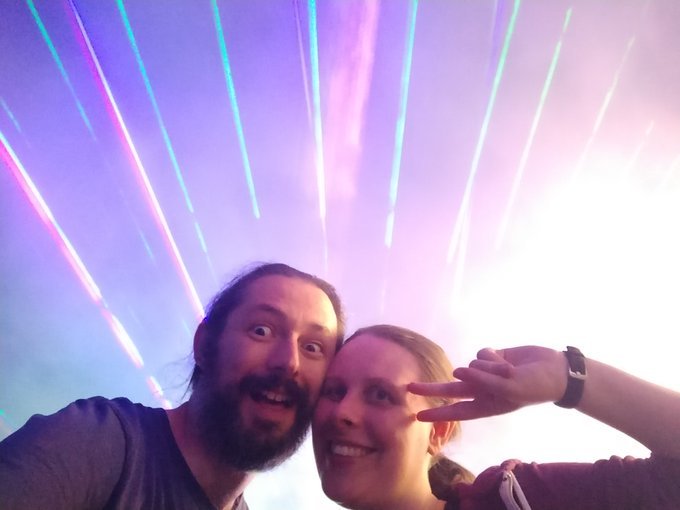 |
Liz is a philosopher, gamer, and co-founder of OpenBenches. She likes aquariua and cocktails. Not at the same time though. Terence has very long hair and an increasingly large number of old mobile phones. He likes making things mobile friendly, eating vegetarian food, and writing in the third person. |
Linux Outlaws: Last Time Around
It’s been 5 years since Dan & Fab hung up their microphones and ended the popular Linux Outlaws podcast. Since then a lot has happened in the Free & Open Source world. Join our duo as they reunite for a one-off live show. They’ll be recapping what’s happened since the end of LO, discussing the big stories in the FOSS world right now, and speculating what might be coming down the pipeline in the future.
Fabian Scherschel @fabsh and Dan Lynch @MethodDan
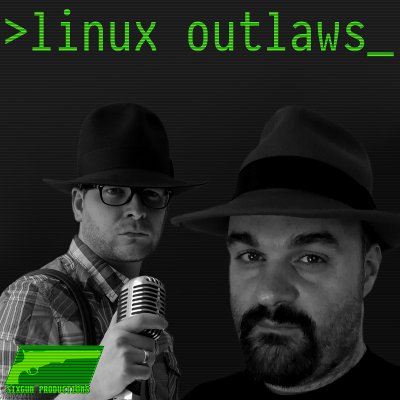 |
Fab is a freelance journalist and podcaster from Hamburg, Germany. He is a former security editor for Heise.de amongst many other things. Dan is a musician, podcaster, audio engineer and geek from Liverpool, UK. He regularly hosts FLOSS Weekly on the TWIT Network, does his own shows and also serves as producer for Free As In Freedom. |